BY SETH WILLIAMS
After the Civil War and passage of the 13th, 14th, and 15th amendments, many black Americans struggled to find the footing to move forward. While many black leaders advocated for equality and inclusion among their fellow Americans, some took a more measured approach- Booker T. Washington, who many viewed as the de facto leader of the black American community, among them.
The American South of the 1890s was a time of political turmoil and cultural rebuilding. The Civil War had been over for 20 years, and a new generation of white leaders began to shape the politics of the region. These leaders sought to shape the south in the image of their forefathers, and blacks were largely powerless to stop it.
Enter Booker T. Washington. Together with many black and white leaders, Washington sought to forge a peaceful path forward for black Americans to find their piece of the American dream. In his opinion, economic security was their primary concern, far more important than the abstract benefits offered by higher education and political office. Therefore, he reasoned, if blacks accepted social inferiority and consented to white rule, whites would be obligated to aid black Americans in their quest for improved economic status. To this end, he delivered his famous speech entitled “The Atlanta Compromise” on September 18th, 1895. In it, he argued for blacks to focus on improving their own economic conditions while they left the stewardship of the country in the hands of whites.
While many white American were supportive of Washington’s ideas, numerous black intellectuals rejected it as a pathway to permanent subjugation to the white masters. This opposition led to the formation of the Niagara Movement and the NAACP, both of which advocated for racial equality and integration rather than subjugation and separation. W.E.B. Du Bois wrote in his work The Souls of Black Folk that, “Mr. Washington represents in Negro thought the old attitude of adjustment and submission…” and accused him of accepting the inferiority of the Negro races.
It’s worth noting that Washington’s ideas may have come from viewing first-hand the plight of poor southern blacks, causing him to question the willingness of whites to accept blacks as their equals. Where many northern leaders were born free and properly educated among white neighbors, Washington was born a slave and had to endure the rigors of southern oppression, racism, and poverty during his formative years. Thus, he may have put forth the idea to garner more funds from wealthy white donors for his Tuskegee Institute, as he simultaneously raised and donated funds for the numerous challenges to Jim Crow that found their way to the U. S. Supreme Court.
Read more of the original article at Britannica.com here: https://www.britannica.com/event/Atlanta-Compromise
Sources:
Richard H. Pildes, Democracy, Anti-Democracy, and the Canon, Constitutional Commentary, vol. 17, 2000, pp. 13–14.
Photo Credit: U. S. Library of Congress





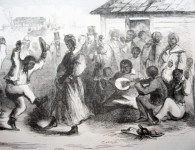



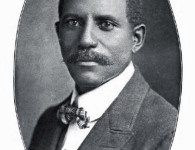

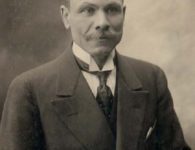



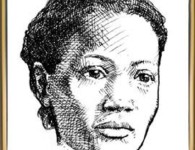



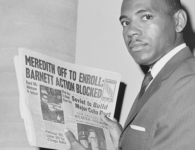

1 Comment
Good post. Thanks.